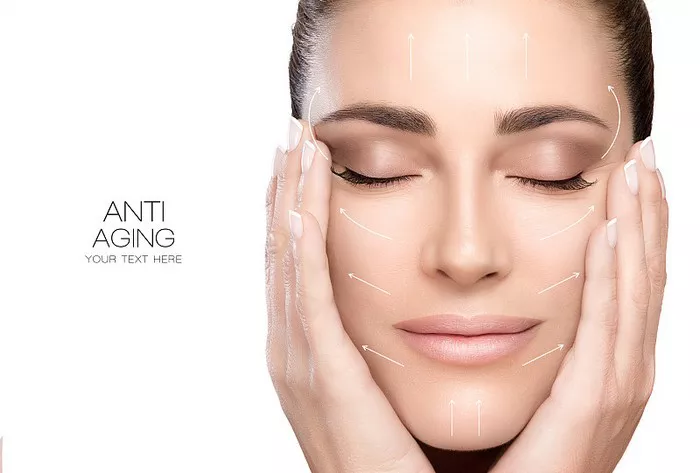Understanding the intricate dance of nutrient interactions is crucial for maximizing the benefits of vitamin supplementation. While vitamins are essential for overall health, the timing of their intake can significantly impact their absorption and effectiveness. This article delves into the delicate balance of vitamins you should not take at the same time, shedding light on the potential pitfalls of concurrent supplementation. From considerations of absorption to the risk of nutrient imbalances, this guide aims to empower you to make informed choices in crafting a well-timed and harmonious vitamin regimen.
1. Iron and Calcium
One of the key pairs of vitamins you should not take at the same time is iron and calcium. Both minerals are crucial for various bodily functions, but they compete for absorption in the gut. Calcium can hinder the absorption of non-heme iron found in plant-based foods when taken simultaneously. To ensure optimal absorption, it’s advisable to separate the intake of iron and calcium supplements. If both are required, spacing them apart or taking them with meals that are not rich in calcium can help mitigate the competition for absorption.
2. Calcium and Magnesium
Calcium and magnesium are essential minerals for bone health, muscle function, and nerve transmission. However, they can interfere with each other’s absorption when taken simultaneously. While both minerals are crucial, finding the right balance is key. When considering vitamins you should not take at the same time, it’s advisable to separate the intake of calcium and magnesium supplements. This allows each mineral to be absorbed without hindrance, promoting overall bone health and preventing potential imbalances.
3. Vitamin D and Calcium
Vitamin D and calcium work synergistically to support bone health, but their interaction requires careful consideration. While vitamin D enhances the absorption of calcium, taking excessively high doses of vitamin D can lead to elevated calcium levels in the blood, a condition known as hypercalcemia. When contemplating vitamins you should not take at the same time, it’s crucial to strike a balance. If supplementing with both vitamin D and calcium, consult with healthcare professionals to determine appropriate doses and timing to avoid potential adverse effects.
4. Zinc and Copper
Zinc and copper, both essential trace minerals, play vital roles in various physiological processes. However, excessive intake of one can interfere with the absorption of the other. When considering vitamins you should not take at the same time, it’s important to maintain a balance between zinc and copper supplements. While both minerals are essential, taking excessively high doses of one may lead to imbalances and potential adverse effects. A comprehensive approach that considers dietary intake and periodic assessments of nutrient status guides optimal supplementation.
5. Vitamin C and Copper
Vitamin C, celebrated for its antioxidant properties, can interact with copper when taken in excess. While vitamin C supports overall health, high doses may interfere with copper absorption and utilization. When contemplating vitamins you should not take at the same time, it’s essential to strike a balance. If both vitamin C and copper supplements are deemed necessary, consulting healthcare professionals can guide appropriate doses and timing to avoid disruptions in trace mineral dynamics.
6. Vitamin B12 and Folate
Vitamin B12 and folate, both crucial for DNA synthesis and red blood cell formation, work synergistically in supporting various bodily functions. However, excessive intake of one may mask deficiencies in the other. When considering vitamins you should not take at the same time, it’s important to strike a balance between vitamin B12 and folate supplements. While both B-vitamins are essential, maintaining an appropriate ratio and considering individual health needs ensures comprehensive support for cellular processes.
7. Vitamin E and Vitamin K
Vitamin E, a potent antioxidant, and vitamin K, crucial for blood clotting, each contribute to specific aspects of health. However, when taken in excessively high doses simultaneously, they may interfere with each other’s functions. When contemplating vitamins you should not take at the same time, it’s crucial to strike a balance. Both vitamins play unique roles, and moderation ensures that each nutrient functions optimally without disrupting the delicate equilibrium of antioxidant and coagulation dynamics.
8. Vitamin A and Vitamin K
Vitamin A and vitamin K, each vital for distinct functions in the body, require a delicate balance when it comes to supplementation. Excessive intake of vitamin A may interfere with the utilization of vitamin K, potentially impacting blood clotting functions. When considering vitamins you should not take at the same time, it’s essential to strike a balance between these fat-soluble vitamins. Consulting healthcare professionals and maintaining a varied diet that includes appropriate sources of both vitamins contribute to optimal health without compromising essential physiological processes.
9. Vitamin D and Magnesium
Vitamin D and magnesium are integral for skeletal health and muscle function. While vitamin D enhances the absorption of magnesium, excessive vitamin D intake can lead to elevated magnesium levels in the blood. When contemplating vitamins you should not take at the same time, it’s crucial to strike a balance. If supplementing with both vitamin D and magnesium, consulting with healthcare professionals can guide appropriate doses and timing to ensure the synergistic benefits without risking imbalances.
10. Vitamin C and B Vitamins
Vitamin C enhances the absorption of non-heme iron and non-meat sources of iron but may impact the absorption of certain B vitamins when taken in high doses. When considering vitamins you should not take at the same time, it’s important to be mindful of potential interactions with specific B vitamins. Striking a balance and maintaining a varied diet that includes vitamin C-rich foods contribute to coordinated absorption without compromising the overall efficacy of B-vitamin supplementation.
11. Vitamin E and Selenium
Vitamin E, a potent antioxidant, and selenium, a trace mineral with antioxidant properties, may interact when taken in high doses simultaneously. When contemplating vitamins you should not take at the same time, it’s crucial to strike a balance. Both nutrients contribute to overall health, and moderation ensures that each antioxidant functions optimally without disrupting the delicate equilibrium of nutrient interactions. A varied diet rich in diverse antioxidants, alongside reasonable supplementation, supports comprehensive antioxidant support.
12. Multivitamins and Individual Supplements
When navigating vitamins you should not take at the same time, it’s essential to consider the interaction between individual supplements and multivitamins. Multivitamins often contain a combination of various vitamins and minerals, and taking additional individual supplements requires strategic timing. Avoiding unnecessary duplications and considering the composition of both multivitamins and individual supplements ensures comprehensive nutrient support without risking imbalances or interference with absorption.
Conclusion
In conclusion, understanding vitamins you should not take at the same time is a nuanced and essential aspect of crafting a well-timed and harmonious nutrient regimen. While each vitamin and mineral plays a unique role in supporting health, their interactions highlight the importance of balance and moderation. Consulting with healthcare professionals, regular monitoring of nutrient levels, and maintaining a varied and nutrient-rich diet contribute to a holistic and well-informed approach to vitamin supplementation. By navigating nutrient interactions with care and consideration, you can optimize your path to optimal health and well-being.
[inline_related_posts title=”You Might Be Interested In” title_align=”left” style=”list” number=”6″ align=”none” ids=”4060,4055,4021″ by=”categories” orderby=”rand” order=”DESC” hide_thumb=”no” thumb_right=”no” views=”no” date=”yes” grid_columns=”2″ post_type=”” tax=””]





























